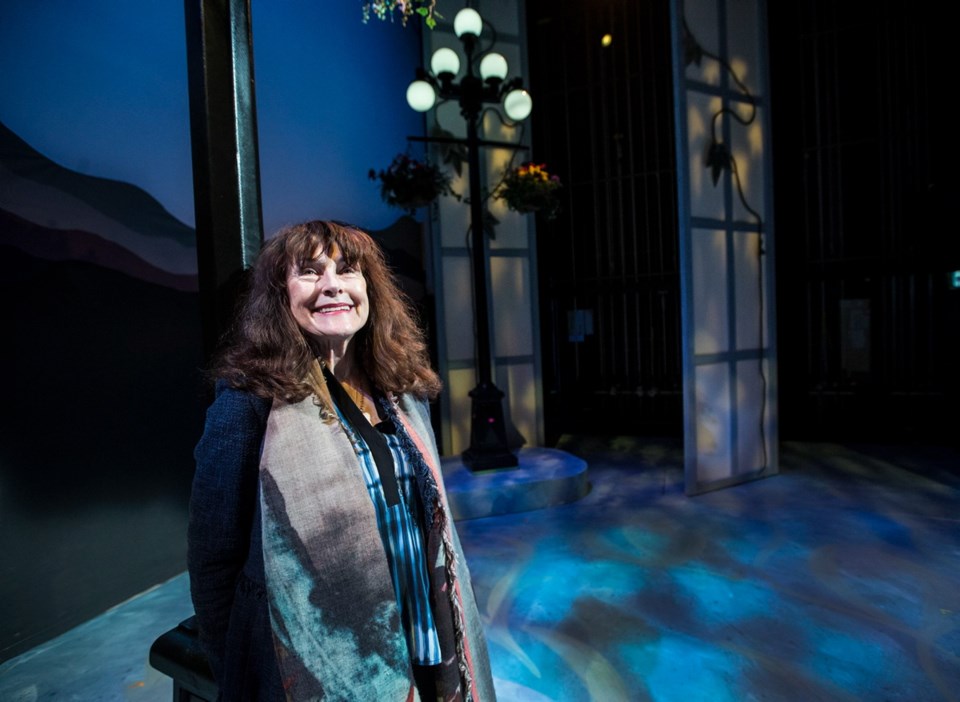PREVIEW
What: The Inspector
Where: Phoenix Theatre
When: Opens tonight, continues to March 18
Tickets: $26 (250-721-8000)
With its dancing turds, a tent city and bike-lane imbroglios, a new theatrical adaptation thrusts a classic Russian play onto the streets of Victoria.
The Inspector is Linda Hardy’s yanked-from-the-headlines reinvention of The Government Inspector, the 1836 satire by Nikolai Gogol. Staged by the University of Victoria’s theatre department, The Inspector spoofs the inhabitants of a West Coast town called Paradise.
If Paradise seems a lot like Victoria, that’s no accident.
For added verisimilitude, theatre professor Hardy and her team even persuaded the City of Victoria to lend them two municipal light standards (the massive metal ones that hold flower baskets) for the set.
“And they weigh 800 pounds each, you know,” said Hardy, who also directs the student production.
One of the farcical comedy’s most outrageous scenes features two actors who, as Mr. and Mrs. Floatie, dance around in turd-shaped costumes while manipulating toilet plungers. “We’re here to talk about poo. That’s what we do,” Mrs. Floatie sings.
Victoria’s seemingly endless debate about how (or even whether) to treat sewage isn’t the only local issue that surfaces in The Inspector. The play commences with policemen rousting homeless men at dawn. One cop suggests they “get a handout at Our Place before it’s all gone.”
Later, there’s a discussion of rats “as big as Rottweilers” in a homeless encampment. In another scene, a woman complains about being ticketed for parking in front of her own house. The ticket-dispenser suggests she trade her car for a bicycle.
That incident is culled from real life, says Hardy. A friend of hers was continually ticketed for parking in front of her townhouse at Dockside Green. The parking limit meant she had to shift her car every two hours.
“The tickets just went up and up over the course of six months. She went down to city hall three times. Got nowhere,” Hardy said.
The Inspector also touches on such Victoria-esque topics as a police chief in trouble over his emails and tweets, pop-up marijuana dispensaries and a mayor whose fondness for bicycles recalls this city’s “Biketoria” aspirations.
Hardy said: “You have [in The Inspector] this central theme of bikes, right? The mayor’s in love with bikes. And he’s going to turn this city into Amsterdam or Paris. We’ll close down the streets. Well, think about the closing down of Douglas Street.”
It took Hardy five months (with “one day off”) to transform The Government Inspector into The Inspector. She relied heavily on Times Colonist reports — projected images of newspaper clippings feature in the play’s design.
While liberties have been taken, she tried to remain faithful to the original’s intent. In Gogol’s play, denizens of a small Russian town mistake a lowly civil servant for a big-shot official who has come to “inspect” them. The Inspector pivots on a similar premise. Here the “inspector” is an Ottawa man who gobbles up room-service delicacies, but isn’t quite the bigwig he seems.
As in The Government Inspector, the themes of human greed, corruption and hypocrisy loom large. Ditto for The Inspector. Hardy notes her play features unscrupulous real-estate agents and developers who will do anything to make a buck — whether it’s good for the city or not.
This is one of her pet peeves when it comes to Victoria. Much of the city’s “unique charm and beauty” is disappearing, said Hardy, who grew up here. The Inspector’s assistant director, Jeffrey Renn, agrees.
“What has always been exceptional about Victoria is this notion that we’re a city, but we really are a village. We’re losing that today, because of development and greed,” he said.
Given the show is riotous send-up of Victoria politics, one might wonder whether Hardy and company have issued invitations to the mayor and councillors.
Not as such.
“But you know,” she said with a grin, “they can come if they want.”



